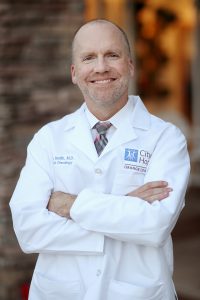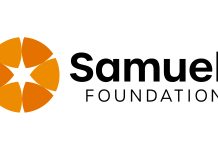
By Wade Smith, M.D., City of Hope Newport Beach Fashion Island
The World Health Organization encourages us to focus on keeping people and the planet healthy for this year’s World Health Day on April 7.
It’s a topic not just for the far-reaching corners of the world but also much closer to home, especially when it comes to cancer care.
As a City of Hope Orange County physician focused on breast cancer, I am encouraged by this year’s theme. We learned from the pandemic that our community cannot be truly healthy until everyone has access to quality health services, including preventive care, which is by far the best way to address diseases such as cancer.
Now, it’s time to act.
Consider the facts. Breast cancer inequities for African-American women are shocking. According to the Susan G. Komen Foundation, mortality is about 40 percent higher for African-American women in the U.S. than Caucasian women. Additionally, African-American women are often diagnosed with late-stage breast cancer when treatment options are limited, more expensive, and the prognosis is not as favorable.
Here in Orange County, Hispanic/Latinx women constitute more than a third of area residents and represent almost a third of women over 40 who have never had a mammogram. They are also more likely to be diagnosed with breast cancer at a later stage. Compared to non-Hispanic women, they are less likely to receive timely treatment.
So, what do we do in Orange County, a community often touted for its healthy lifestyles?
True equity for cancer care will come from acting on several fronts. One is reaching out in a manner that is culturally aware. City of Hope is especially active in the Asian American/Pacific Islander community, where there has long been a reluctance to discuss cancer treatment or screening.
Access to highly specialized cancer care is another critical factor. Cancer is complex, and patients should be treated by experts in their kind of cancer. I’m heartened by California’s Cancer Bill of Rights, legislation passed last year that expands narrow insurance networks to include lifesaving specialized care.
With cancer, many patients can benefit from access to innovative clinical trials that lead to breakthrough cancer treatments. My City of Hope colleague, Dr. Edward Kim, is one of the nation’s top advocates for eliminating longstanding clinical trial exclusions that have prevented many patients — including those in underserved communities — from participating in the latest research.
Promoting prevention and education is remarkably effective, too. We know that the best way to stop cancer is to prevent it in the first place. Reaching out to women, talking to them about annual mammograms, adopting healthy lifestyles, and seeing a doctor when they notice breast abnormalities are all important.
Sometimes, it’s a matter of providing information in a woman’s primary language and ensuring that health care specialists follow up in a way that is culturally and linguistically appropriate.
The good news is that we are close to ending breast cancer in our lifetime. But this progress cannot be just for some women. Today’s remarkable work in treating cancer must be of equitable benefit. World Health Day encourages us to act now, overcome age-old obstacles, and recognize that when it comes to cancer, everyone has a right to be hopeful.
Wade Smith, M.D., is a medical oncologist specializing in breast cancer treatment and research at City of Hope Newport Beach Fashion Island. For more information on City of Hope locations in Newport Beach (Fashion Island and Lido) and the surrounding area, visit http://www.cityofhope.org/orange-county.




